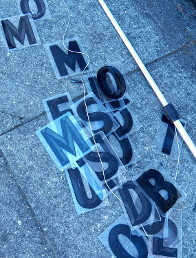
“It is nothing.”
These were the words uttered rather non chalantly by a Russian neighbor when I expressed my delight at her beautiful carnations. I had some, and they just didn’t look like hers, despite trying several methods to make them flourish. I was bugged by the answer.
Then, I started to notice this was a trend among those I encountered from former Soviet States. It is nothing is like a mantra, the go-to answer for accomplishments large and small. I didn’t really get it until reading The House of Meetings by Martin Amis. The novel describes the life of two brothers in 20th century Russia: their love for the same woman, the wars, life in the gulag, life afterward.
The novel is a long letter from a father to his daughter, confessing his crimes, and describing his love for his brother Lev and his wife Zoya. What really stands out for me is the it is nothing aspect. The lives of the people of Russia have been so tortured (quite literally) and on the precipice for so long that nothing is truly valued, for if this were to happen, it would make the loss more unbearable. There are marriages, children, wars, rapes, thefts, and squalid conditions, but with them only a vague sense of gratitude, joy, remorse, or loss. It’s very strange.
The novel itself is a pretty swift read, smart, well researched, and even humorous at times. Though I did have to make stops at the dictionary for these words: pelf, rictus, cloacal, scrofulous, and lachrymist. Golly, does Martin Amis have an enviable vocabulary – it is something. On the whole, I liked the book it and found it rather enlightening. I appreciated the fact that it was so detached, as, sensitive girl that I am, I certainly could not have stomached the work had the narrator been passionately engaged and vividly describing the events of his life. On the other hand, I cannot help but feel sad that one could live this way, or treat others in such a fashion, as cold as the Siberian plain. I doubt I would last very long.
























